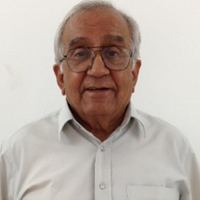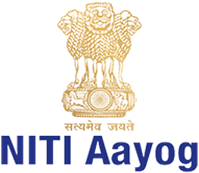
Professor Kirit Parikh, Chairman of IRADe was a former Member of India’s Planning Commission (2004-2009) with the status of Minister of State. He has been a member of the Economic Advisory Councils (EAC) of five Prime Ministers of India, Rajiv Gandhi, V.P. Singh, Chandra Shekhar, P.V. Narasimha Rao and Atal Bihari Vajpayee.
He was awarded “Padma Bhushan” by the president of India, the third highest civilian award in India. He was also a recipient of Nobel Peace Prize awarded to IPCC authors in 2007.
He was the Founder Director (Vice Chancellor) of the Indira Gandhi Institute of Development Research (IGIDR), Mumbai. He is a Fellow of the National Academy of Sciences, India. He has a Doctor of Science in Civil Engineering and a Master’s Degree in Economics from Massachusetts Institute of Technology (MIT), USA and M. Tech from IIT (Kharagpur). He has been a Professor of Economics since 1967. From 1997 to 1998, he was Special Economic Adviser to the Administrator, United Nations Development Programme (UNDP), New York.
He has been a member of many high level advisory committees spanning diverse areas such as the Indian National Committee for Environmental Planning & Coordination (1971-74), the National Committee on Science and Technology (1974-76) and the Fuel Policy Committee (1970-74).
He chaired the Expert Committee on “Integrated Energy Policy” and also the Expert Group on “Low Carbon Strategy for Inclusive Growth” set up by the Planning Commission. He is widely recognized as the architect of India’s integrated energy policy. He also played an important role in energy policy reforms in the country.
He has authored, co-authored and edited 29 books in the areas of planning, water resource management, appropriate technology for housing, optimum requirement for fertilizers, energy systems, national and international food policies, trade policies, general equilibrium modeling, natural resources accounting, inclusive growth and strategies for low carbon development

